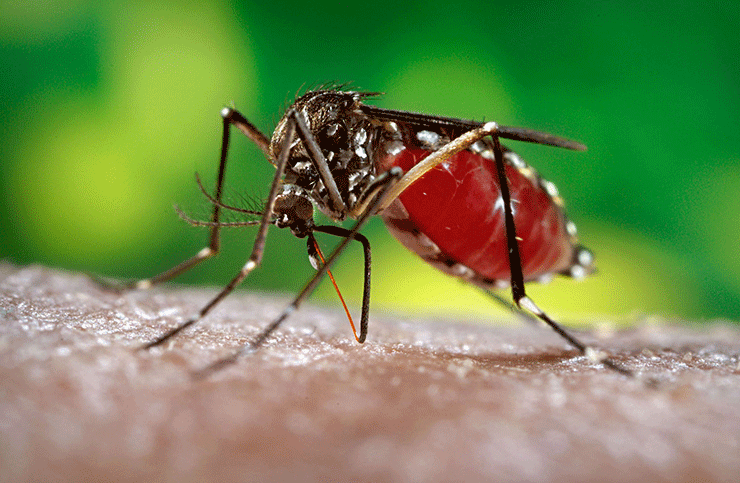Misdiagnosis of febrile illnesses as malaria is a continuing problem in Africa. A new study shows that in Ghana, dengue fever is circulating in urban areas and going undiagnosed.
The authors of the study hope to use the findings to launch a widespread initiative to better understand acute undifferentiated febrile illnesses in West Africa.
“We believe dengue to be one of many diseases with classic fever and headache symptoms that are currently being misdiagnosed as malaria on a massive scale,” said Justin Stoler, assistant professor of Geography in the University of Miami (UM) College of Arts and Sciences, and lead investigator of the study.
“The over-prescribing of anti-malarials puts evolutionary pressure on the malaria parasite that risks hastening its resistance to artemisinin-based combination therapy–the frontline drugs used to treat malaria in Africa,” Stoler said. “Such resistance is already spreading across Southeast Asia.”
Dengue is not contagious. The disease is transmitted from the bite of an infected mosquito. The study recently published in The American Journal of Tropical Medicine and Hygiene is the first to demonstrate evidence of local transmission of dengue virus in Ghana, rather than exposure being limited to cases brought back from other countries.
Due to limited resources, many healthcare facilities in Ghana use only a clinical examination to presumptively diagnose malaria. However, a definitive diagnosis requires a laboratory test. In 2013, around 45 percent of all child outpatients, and 40 percent of all outpatients, received a clinical diagnosis of malaria after seeking treatment for febrile illness at health care facilities in Ghana’s capital city, Accra. Yet, less than one third of all national malaria diagnoses were confirmed by blood tests.
Interestingly, the researchers looked for possible exposure to dengue in archived blood samples from children ages 2-14 years old who had been diagnosed with laboratory-confirmed malaria. The samples were collected at local health facilities from 2011 to 2014 in three ecological zones of Ghana: Navrongo, Kintampo, and Accra.
The findings show that of 218 children with laboratory-confirmed malaria, 21.6 percent tested positive for long-lasting dengue IgG antibodies, which imply any lifetime exposure to dengue virus, while 3.2 percent tested positive for short-term dengue IgM antibodies, which indicate recent exposure, generally in the previous 90 days.
“If these children who were confirmed to be malaria-positive also tested positive for dengue exposure, imagine what the incidence of dengue could be in unconfirmed malaria cases,” Stoler said. “If these patterns hold in Ghana, then the misdiagnosis burden in other large urban areas in Africa could approach one-third of all outpatient visits, given the large volume of presumed malaria cases in health care facilities”
The hope for better health outcomes in the region lies in getting the diagnosis right.
“As the price and accuracy of rapid diagnostic tests and other diagnostic instruments improve, I think we have a chance to really make a difference in clinical settings facing huge burdens of acute undifferentiated febrile infections that I believe are being misdiagnosed,” said Stoler, who also holds a position in the Department of Public Health Sciences at the UM Miller School of Medicine.
Read the study: Evidence of Recent Dengue Exposure among Malaria Parasite-Positive Children in Three Urban Centers in Ghana.



